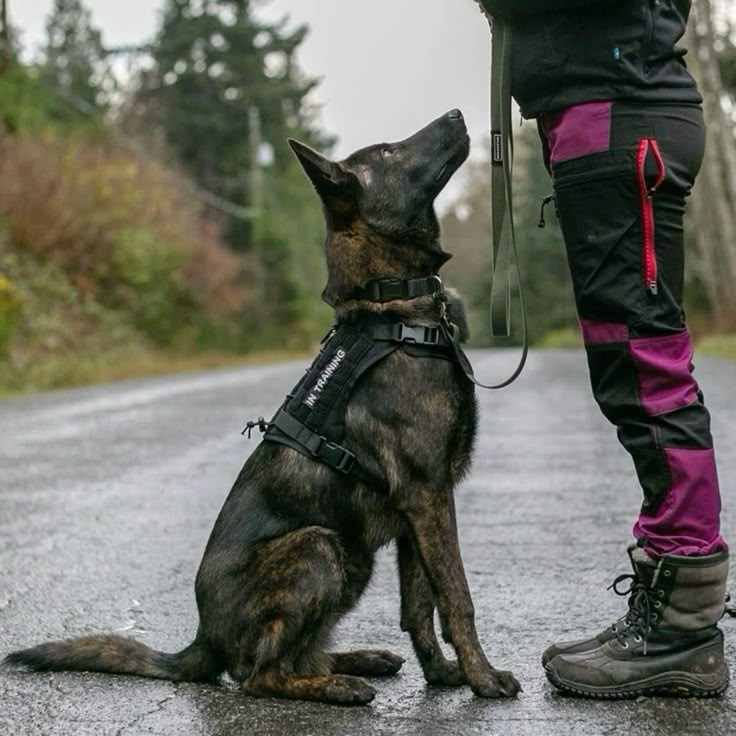Bringing a rescue or adopted dog into your Los Angeles home is a profoundly rewarding experience, offering a second chance at a happy life for a deserving canine. However, these dogs often come with unique histories, past traumas, or unknown backgrounds that can manifest as specific behavioral challenges. Effective and compassionate training is crucial to help them adjust, build trust, and thrive in their new environment. Los Angeles offers a variety of specialized dog training programs designed to address the unique needs of rescue and adopted dogs, fostering successful transitions and lasting bonds.
Understanding the Unique Needs of Rescue Dogs
Rescue and adopted dogs may exhibit behaviors that stem from their past experiences, such as:
- Fear and Anxiety: Often due to past neglect, abuse, or lack of early socialization. This can manifest as shyness, hiding, trembling, or even fear-based aggression.
- Separation Anxiety: A common issue for dogs who have experienced abandonment or frequent changes in living situations.
- Lack of Socialization: May not have been exposed to various people, places, or other dogs, leading to reactivity or discomfort in new situations.
- House-Training Challenges: May not have been consistently house-trained in previous environments.
- Resource Guarding: Protecting food, toys, or space due to past insecurity or competition.
- Unknown History: Without a clear past, understanding the root cause of certain behaviors can be challenging.
Patience, empathy, and a tailored training approach are paramount for these dogs.
Key Principles for Training Rescue and Adopted Dogs
Effective training for rescue dogs in Los Angeles focuses on building trust, confidence, and positive associations, rather than just suppressing unwanted behaviors Dog training Los Angeles.
- Patience and Understanding: Allow your dog time to decompress and adjust to their new home. Avoid overwhelming them with too much too soon.
- Positive Reinforcement: This is the most effective and humane method for rescue dogs. Rewarding desired behaviors builds confidence and strengthens the bond of trust.
- Building Trust: Focus on creating a safe, predictable, and loving environment. Avoid punishment, which can exacerbate fear or aggression.
- Consistency and Structure: A clear routine helps anxious dogs feel secure and understand expectations.
- Professional Guidance: Many behaviors in rescue dogs require the expertise of a professional trainer or behaviorist.
Top Dog Training Los Angeles Options for Rescue Dogs
Los Angeles boasts several excellent resources for rescue and adopted dogs, offering specialized programs and experienced trainers:
1. Private In-Home Training: Personalized & Contextual
- Why it’s ideal: Many behavioral issues in rescue dogs (e.g., fear of visitors, house-training accidents, separation anxiety) are context-specific. In-home training allows the trainer to observe and address these behaviors directly where they occur. It also provides a low-stress environment for a dog that might be overwhelmed in a group setting.
- Benefits: Highly personalized attention, tailored strategies for complex issues, and direct coaching for owners in their own environment.
- Where to find them: Many independent trainers in LA, such as The Dog Savant (Brett Endes), specialize in behavior modification and work with rescue dogs in their homes. Some larger academies like Fun Paw Care also offer private, in-home components to their programs.
2. Board & Train Programs: Intensive & Structured
- Why it’s ideal: For rescue dogs with more severe behavioral issues (e.g., significant reactivity, aggression, severe separation anxiety) or for owners with very limited time, an immersive board-and-train program can provide a structured environment for intensive rehabilitation.
- Benefits: Consistent, professional handling and training from experts, allowing for significant behavioral breakthroughs in a controlled setting.
- What to expect: Reputable programs will include comprehensive “transfer sessions” to teach owners how to maintain the learned behaviors once the dog returns home.
- Where to find them: Fun Paw Care and Elevated Canine Academy are known for their effective board-and-train options, often specializing in complex behavioral issues.
3. Specialized Behavior Consultants
- Why it’s ideal: For dogs exhibiting aggression, severe anxiety, or phobias, a certified canine behavior consultant (often with advanced degrees or certifications like CBCC-KA) is crucial. They conduct in-depth functional assessments to understand the root cause of the behavior.
- Benefits: Expertise in complex cases, focus on underlying emotional states, and development of comprehensive behavior modification plans.
- Where to find them: Look for individual consultants or clinics that explicitly state specialization in canine behavior modification for aggression and anxiety.
4. Positive Reinforcement Group Classes (Once Ready)
- Why it’s ideal: For rescue dogs who have overcome initial fear or reactivity and are ready for structured socialization. Group classes can help build confidence around other dogs and people in a controlled setting.
- Benefits: Affordable, provides controlled socialization, and helps generalize learned behaviors to distracting environments.
- Where to find them: Organizations like spcaLA offer affordable group classes with a strong emphasis on positive reinforcement, which is ideal for building confidence in rescue dogs.
Key Considerations When Choosing a Program
- Trainer Experience with Rescue Dogs: Look for trainers who have specific experience and a compassionate approach to dogs with unknown histories or trauma.
- Training Philosophy: Prioritize positive reinforcement methods. Avoid any trainers who use harsh, aversive, or fear-based techniques, as these can be detrimental to a rescue dog’s progress and trust.
- Initial Assessment: A thorough initial consultation is crucial to accurately assess your dog’s needs and create a tailored plan.
- Owner Involvement: Ensure the program empowers you with the knowledge and skills to continue the training and build a strong bond.
Conclusion
Training a rescue or adopted dog in Los Angeles requires a nuanced and empathetic approach, recognizing their unique needs and past experiences. By choosing a program that emphasizes patience, positive reinforcement, and specialized expertise in behavior correction, LA dog parents can successfully help their adopted companions adjust, build confidence, and thrive, ultimately leading to a fulfilling and harmonious life together.


